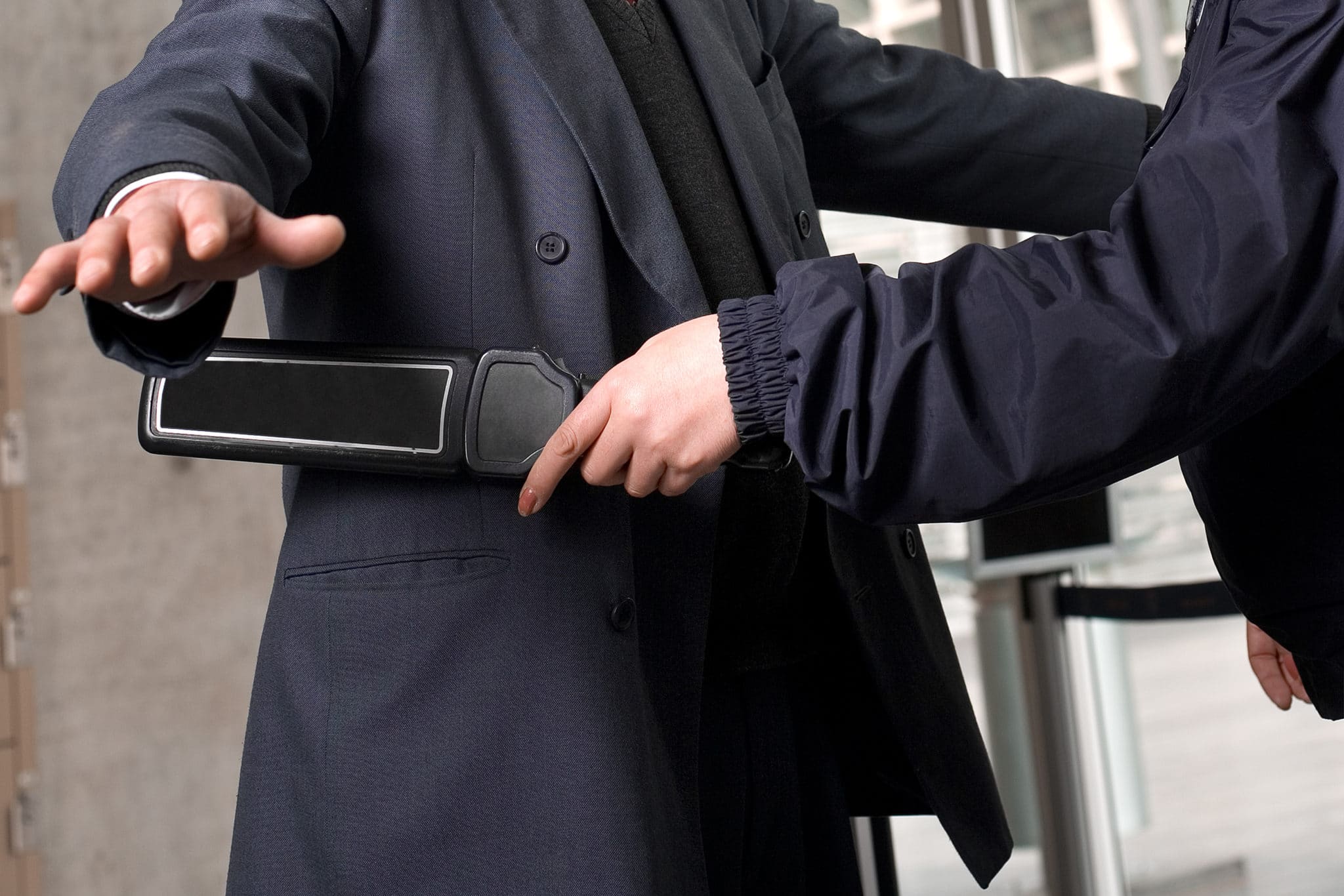
Figen Murray discusses the Manchester Arena Inquiry and the positive impact Martyn’s Law is set to have on protective security protocol.
On 22 May 2017, Martyn Hett was killed alongside 21 other attendees of an Ariana Grande concert at the Manchester Arena. As the years have passed, Martyn’s mother, Figen Murray, has worked tirelessly with government ministers and the wider security community to use her tragedy to create ‘Martyn’s Law’ (Protect Duty), a piece of legislation which possesses the power to better prepare employers, staff and the general public for future terrorist incidents.
Soon after Sir John Saunders, Chairman of the Manchester Arena Inquiry published ‘Manchester Arena Volume I: Security for the Arena’ in June 2021, Security Journal UK sat down with Murray to hear her thoughts on the first stage of the Inquiry and how Martyn’s Law can ensure that publicly accessible locations can effectively prepare security procedure in the event of emergency.
Martyn’s Law
In December 2018, Murray visited a small music venue with her husband. In preparation for it, she took her smallest handbag to ensure that the bag searches remained quick and straightforward for the event staff. She made the assumption that following the Manchester Arena attack, everywhere would have stricter security. Much to her surprise however, though there were plenty of staff present to perform searches, Murray and her husband were able to walk straight past and take their seats with barely any questions asked.
“At one point during the concert I began to cry and my husband asked me if it was because of the song we were listening to,” Murray recounts. “No,” she said to her husband. “I’m crying because there’s no security – Martyn died because of something like that.”
As Christmas came and went, that feeling stuck with Murray and in January 2019 she decided to take action. Murray explains: “I started a government petition. After 10,000 signatures, the government is obliged to answer in writing – I got a reply that explained that because there was other security legislation in place, they would not be making any changes.
“The petition continued however and at the time I was competing with a petition to bring back McDonalds plastic straws as well as another one to restore the Jeremy Kyle show to television. These campaigns got to within 100,000-250,000 signatures within ten days whereas mine lasted six months and crawled up slowly to 23,500. This showed me that the general public aren’t really that bothered about security.”
As the petition slowly gained traction, it really took off when she was contacted by Brendan Cox (Survivors Against Terror) who said that he believed in what Murray was doing and wanted to help her. After Cox introduced Murray to Nick Aldworth in February 2019, he also offered to help after he had retired from his role at the Metropolitan Police.
Murray adds: “When Nick retired, he came on board. Brendan then got me to London and sat me down in a meeting with former Minister for Security, Brandon Lewis. It gained momentum from there and since then the security industry seems to have got on board with it.
“The public consultation for Martyn’s Law (which will be a part of the Protect Duty) will finish in July 2021. After this, there will be a two-to-three month evaluation period.”
Changing protective security protocol
Whilst Murray hoped that in the report there would be at least one paragraph about Martyn’s Law, she was pleasantly surprised to find that a whole chapter had been dedicated to it; Sir John Saunders suggests in the report that the implementation of strict legislation is necessary within the security sector and that if it is not adhered to, the consequences should be as severe as they are for Health and Safety breaches.
Murray went on to explain how protective security protocol would change under Martyn’s Law: “Whilst I’m unsure what the government will make of it, the enquiry has been initiated by Home Secretary Priti Patel so hopefully they will take note of what has been said.
“Sir John Saunders has asked that within the protective security protocol, there is more training for staff and that it is ‘policed better’ to ensure that the correct knowledge is being absorbed by those who are learning. The onus will be on employers to make sure that their staff are correctly trained.
“In the last six months I have been engaging in a lot of conversations with the security sector and have joined various organisations, including the Security Institute. The feeling I get is that a lot of people are supporting this and want changes like this to happen.”
One of the major aspects of Martyn’s Law that sets it apart from current licensing is the way in which the legislation could be applied to protect publicly accessible locations. “Licensing doesn’t cover publicly accessible locations such as hospitals, schools, churches, beaches and parks.” Murray illuminates. “These locations cannot be categorised by Health and Safety or Fire Safety legislation either. It is impossible to add it to anything else; since 2014, the attack methodology has changed so much that the need for security legislation is becoming more important than ever.”
Resources for organisations and individuals
Murray described the social media backlash she has received for her campaign for Martyn’s Law, with many critics suggesting that the cost aspect will significantly impact the financial stability of businesses, organisations and arranged events. “People were saying that smaller venues would go bankrupt because of what was being proposed. After the consultation came out, people suggested that car boot sales and church fetes would be a thing of the past because they could never be policed – my view of this is that it is nonsense.
“Long before the consultation when the Mayor of Manchester, Andy Burnham, helped us launch Martyn’s Law, I took these with me to the press conference [Figen holds up a hand held metal detector to the camera] just to prove a point. If anybody tries to tell me they cannot afford security, I bought six of these for under £130. The bigger the venue, the more they can afford to pay for these types of thing.
“In the report, the Judge mentioned that the government should support organisations such as charities to help put security in place. However, resources are not just available in the form of money – things such as the ACT Awareness e-learning programme are available to organisations and businesses. They are so full of advice and learning and are constantly being updated with the latest information out there. Resources also come in the form of professional advice and support.
“For venues like the Manchester Arena, if you are charging a ticket price for £80, then charge an extra pound and recoup some of the money as security levy to pay for staff and additional measures. I am not accepting that security cannot be afforded. Loss of life destroys families.”
With major events in publicly accessible locations set to return this summer providing that COVID-19 restrictions are relaxed by the UK government, the conclusion of the consultation could not have been more timely. However, Murray is more conscious than ever that the terror threat has increased during the pandemic and the public need to be more vigilant than ever.
Murray concludes: “Like I keep saying to people, terrorists have not used the COVID-19 pandemic to bake banana bread, do jigsaws and learn new hobbies. Terrorists have used the time to recruit and to plot further attacks. With the public so desperate to go out and mix with people again, like I was before Martyn died, they are often oblivious to security as it is not on their radar; the petition signatures crawling up so slowly taught me that – it’s just not something people think about.
“Additionally, I’m worried because the threat level has dropped so there is far less resources and people power out there to help look after the general public.”
Once the Inquiry does conclude, Murray said that she is keen to increase the amount of school talks she does as she remains concerned about the amount of recruitment that has been going on and is “fearful that this will escalate over the next few months.”
Murray smiles when asked about what else she has planned for the future. “I am in the dissertation stage of my master’s degree in counter terrorism,” she says. “Once that is completed, my Tutor is desperate for me to go on to do a PhD, however I think I will take a break from studying for a while and maybe do that in the future.
“I would also like to do some of the progression routes in the Security Institute.”

You can find out more about Figen’s story on her website here.
This article was originally published in the July edition of Security Journal UK. To get your FREE digital copy, click here.